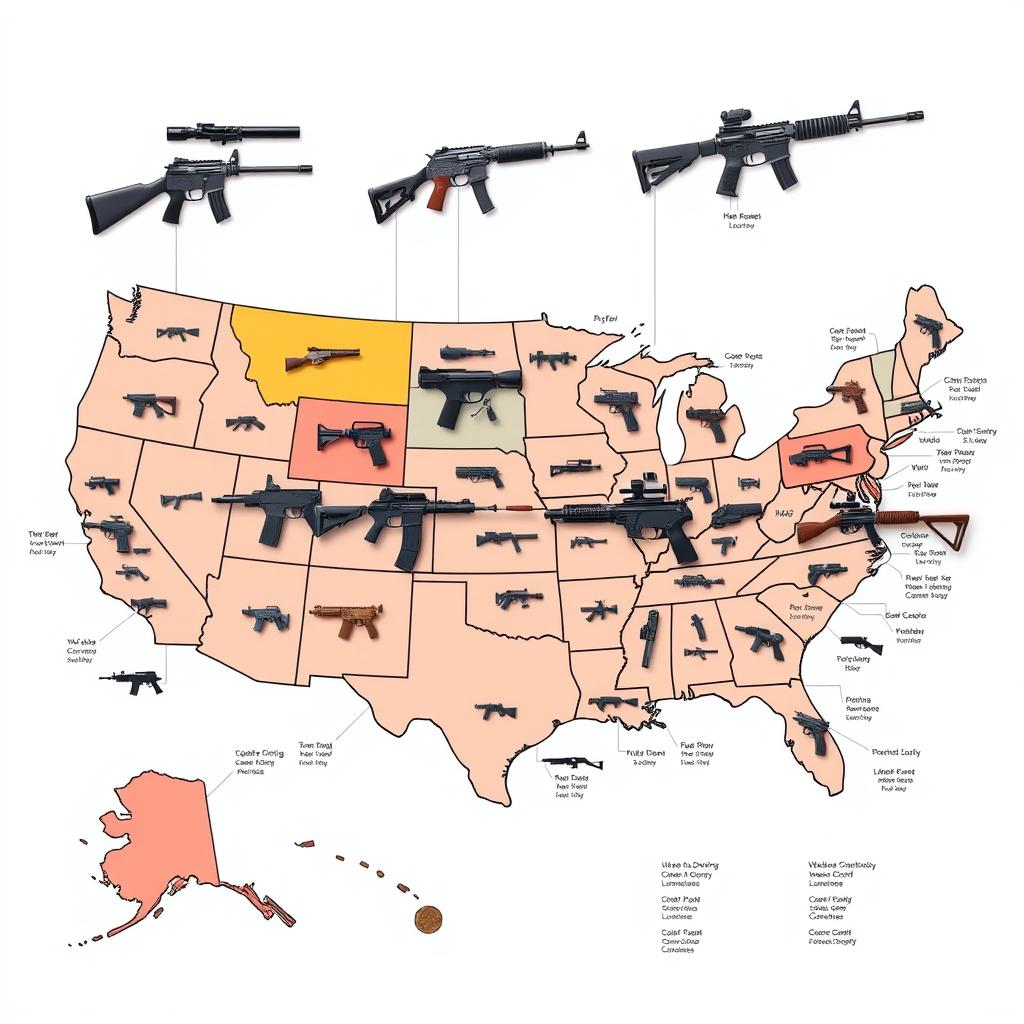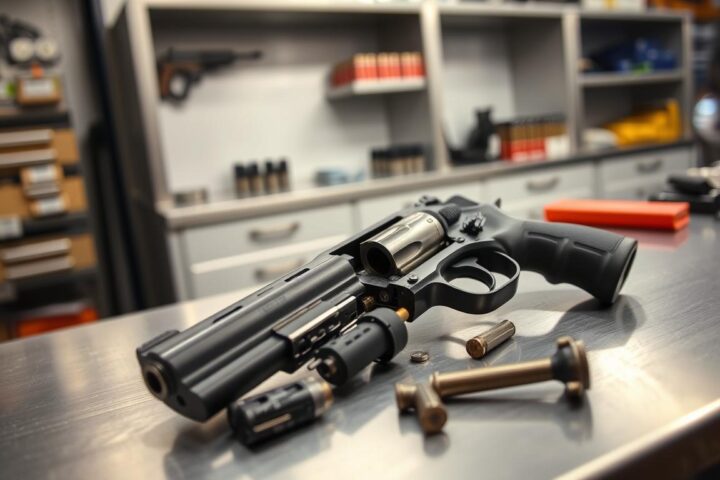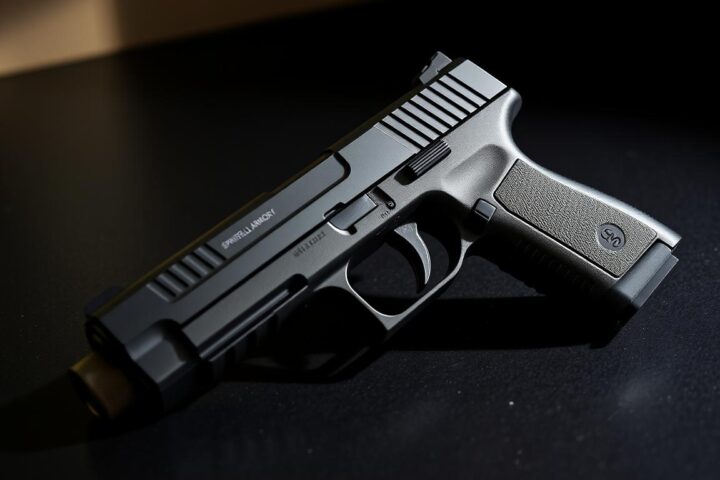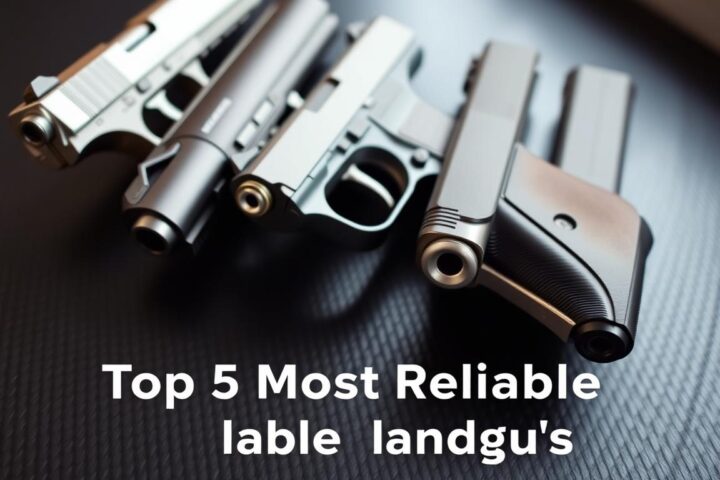Did you know the Supreme Court ruled in District of Columbia v. Heller in 2008? This was the first big look at the Second Amendment in nearly 70 years. It changed how we see gun rights and how state and federal laws work together. Knowing this is key for gun owners in the U.S., as it affects how you can own, sell, and use guns.
The Second Amendment is a big deal in American law. But, how it’s applied varies a lot from state to state. Each state has its own rules, from who can carry a gun to what kinds of guns are allowed. To follow the law and use your rights, you need to know both state and federal gun laws.
We’ll dive into the Second Amendment’s history and its role today. We’ll also look at the debates over gun rights and control. And we’ll explore the different rules gun owners face. Knowing this helps protect your rights and keeps everyone safe.
Key Takeaways
- Understanding the Second Amendment is crucial for every gun owner.
- Gun ownership rights vary significantly between states.
- The interplay between state and federal gun laws can impact firearm regulations.
- Recent Supreme Court rulings have reshaped interpretations of gun laws.
- A thorough understanding of local laws can aid in responsible gun ownership.
Understanding Gun Laws in the United States
U.S. gun laws are complex, covering many areas like who can own guns, how to buy them, and where to carry them. The Supreme Court’s District of Columbia v. Heller case in 2008 was a big deal. It said people have the right to own guns in their homes.
This ruling also said there are limits. For example, felons and the mentally ill can’t own guns. Also, carrying guns in places like schools or government buildings is not allowed.
Gun laws in the U.S. go way back to the 1600s. They show a balance between rules and rights. Today, there are thousands of laws about getting, carrying, and using guns. Some states even banned certain guns long before recent debates started in the 1980s.
The Gun Control Act of 1968 is key in gun laws. It tries to keep guns away from people who might be dangerous. Knowing these laws is important for gun owners. For more on safety, check out essential guidelines for firearm safety.
The Second Amendment: A Brief Overview
The Second Amendment is a key part of the debate on gun rights in America. It was ratified on December 15, 1791. It says that people have the right to own and carry arms, without interference.
Historically, it was created to protect against government abuse and to ensure people could defend themselves.
Supreme Court cases have greatly influenced how we understand the Second Amendment. In District of Columbia v. Heller (2008), the Court ruled 5-4. They said the Second Amendment protects an individual’s right to own guns.
This decision changed the way we talk about gun rights. It made it clear that owning a gun is a personal right.
In McDonald v. City of Chicago (2010), the Court made it clear that this right applies everywhere, not just in Washington D.C. This ruling was a big step in protecting gun rights at the state level.
Since then, there have been more cases that have shaped our understanding of gun rights. For example, in New York State Rifle & Pistol Association v. Bruen (2022), the Court ruled against a strict gun law in New York. They said that people should be able to get a gun permit more easily.
But there’s still a lot of debate about what the Second Amendment really means. Some people think it’s about individual rights, while others believe it’s about the collective right to defend the community. This debate is ongoing, with many experts and politicians weighing in.
Knowing about the Second Amendment is important for anyone who owns a gun. It’s not just about personal freedom. It’s also about understanding the laws that govern gun ownership in our country.
Gun Rights Versus Gun Control
The gun control debate shows a big divide in American society. It’s about finding the right balance between gun rights and keeping people safe. Those who support gun rights say the Second Amendment lets people carry weapons freely. They believe too many rules take away personal freedom and make it harder to defend oneself.
But, those who want stricter gun laws focus on making society safer. They back things like background checks and limits on some guns to cut down on violence. Tragic events like mass shootings have led to calls for tighter gun laws. Almost half of Americans think stricter rules could help prevent such shootings, showing a big worry about safety.
Over time, laws have changed a lot. Big laws like the Gun Control Act of 1968 and the Brady Handgun Violence Prevention Act of 1993 tried to stop gun violence. But, recent Supreme Court decisions, like the 6-3 ruling against New York’s handgun law, show a shift towards favoring gun rights.
This shows the ongoing struggle to find a middle ground. It’s about keeping people safe while also protecting constitutional rights. The debate’s impact on gun laws is big, influenced by public opinion and state laws. For more on the history and legal views of gun rights, see this article on the Second Amendment.
Federal Gun Laws and Their Primary Regulations
Federal firearm laws set rules for guns across the U.S. The Gun Control Act of 1968 was a big step. It made a plan to deal with gun crimes. It says who can buy or own guns, like people with felonies or drug problems.
The Gun Control Act also says you can’t move guns across states without following rules. People selling guns must get a license. This shows the need for careful handling in the gun trade.
There are rules for who can buy guns. For example, you can’t sell guns to minors for handguns. This helps keep communities safe and lets states check guns coming into their area.
There are also rules for guns coming from other countries. Guns must be for sports use. In the 1980s, laws got tougher for gun crimes. This shows the government’s strong stance on gun violence.
The Bureau of Alcohol, Tobacco, Firearms and Explosives (ATF) helps enforce these laws. They make sure dealers follow the rules. Laws like the Brady Law of 1994 have also helped keep society safe.
State Gun Laws: Variability Across the U.S.
Gun laws in the U.S. vary a lot from state to state. This is because of different views on guns in each area. States have their own rules for buying guns and doing background checks on private sales.
Some states have special rules for certain types of guns. This makes the rules on guns even more complex.
Local laws on guns can be different from state laws. This can make things confusing. About 40 states have laws that stop local areas from making gun rules stricter. This helps keep gun laws more uniform, but it’s important for gun owners to know their local and state laws well.
For more on how these laws affect gun rules, check out this resource.
Local gun laws include things like who can carry guns in public. These laws have changed over time. They show the ongoing debate about gun safety and rights.
To learn more about how states handle gun sales, see this article. Talking about these issues is important as we try to balance personal freedom with public safety.
Key Differences Between State and Federal Gun Laws
Knowing the differences in gun laws is key for safe gun ownership in the U.S. Federal laws set a base, but states can make their own rules that might be stricter. This makes the rules for guns complex, with state vs. federal regulations affecting where and how you can own or carry a gun.
One big difference is who can’t own a gun. Federal law says some people, like felons and those with mental health issues, can’t have guns. But states might add more rules, making it important to know the local laws. Getting a permit to own a gun can also vary a lot, with some states making it easier than others.
The rules on certain guns also differ a lot. Federal laws don’t ban certain types of guns or big magazines, but states might. If you own guns or want to, knowing both federal and state laws is vital. This is true, whether you’re traveling or thinking about moving.
Reciprocity and Concealed Carry Permits
For those who own firearms and travel, understanding concealed carry permits is key. Right now, 29 states allow concealed carry reciprocity. This means they recognize permits from other places. It makes it easier for gun owners to carry legally in more states.
Some places, like California and New York, need a permit and have strict rules. But, 9 states and Washington D.C. don’t accept permits from other states. This makes traveling with guns more complicated.
The Concealed Carry Reciprocity Act aims to make things simpler. It passed in the House but is stuck in the House Committee on the Judiciary. Supporters say it’s important for protecting Second Amendment rights. They believe it should let permits be recognized everywhere.
At least 26 states now have rules that let you carry without a permit. But, this can lead to trouble if you don’t know the local laws. You could face big fines or even criminal charges for carrying in places that don’t accept out-of-state permits.
Training for concealed carry permits varies a lot by state. Some require live fire training, while others don’t. This can make some permit holders less prepared. The gun lobby has been pushing for a simpler, uniform way to carry concealed for over 20 years.
Gun Rights, Restrictions, and Background Check Laws
Background checks are key to keeping guns out of wrong hands. They help stop people with criminal or mental health issues from buying guns. Federal law sets the basic rules, but states like California add their own rules. This means buyers in different states face different checks and rules.
Gun laws vary a lot across the U.S. About 20 states and D.C. have stricter background check rules than the federal law. On the other hand, some states don’t require checks for handgun purchases. This mix of rules worries many about public safety, as there are many gun dealers in the country.
Background checks can happen at different times. Some states check at the sale, while others need a permit first. This mix of rules can confuse people who want to buy guns. Research shows that most gun crimes come from other sources, not gun shows. Yet, many mass shooters pass background checks.
For those looking into California or other states’ rules, background check procedures offer detailed info. Knowing how background checks affect gun rights is key for making smart choices in changing laws.
Assault Weapon Bans: Federal and State Perspectives
Assault weapon bans are a hot topic in the gun control debate. They show a big difference between federal and state laws. The 1994 Federal Assault Weapons Ban was a big change. It banned semi-automatic rifles with military looks and magazines over ten rounds.
This ban was met with a lot of opposition. It led to big changes in Congress. After the ban, the federal government stopped selling military rifles to civilians in 1986. This made these rifles rare and expensive for civilians.
By January 1, 2024, ten states and the District of Columbia had their own bans. Maryland’s law is similar to the 1994 federal ban. It has been upheld in court. Other states have banned high-capacity magazines, with three enforcing such bans.
Studies have looked at how assault weapon bans affect mass shootings. The results are mixed. Some studies found prices went up in the secondary market during federal bans.
Each state is making its own rules about assault weapons. Gun owners need to know the laws in their state. These laws can change often. Knowing the laws is key for safe gun ownership. For more on home defense, visit this link.
The Impact of State Preemption on Local Gun Laws
State preemption greatly affects local gun laws in the U.S. Forty-five states have laws that limit what local areas can do. This makes it hard for local governments to create their own gun laws. Coral Gables, Florida, is a good example. The city faced big penalties for trying to make their own gun laws, even though they went against state rules.
State preemption has changed over time. It’s not just about making sure state and local laws match anymore. Now, it’s about making sure local governments can’t make their own laws. The Arizona Supreme Court ruled in 2017 that local gun laws can’t be made. The Florida Supreme Court also made a ruling that shows how strict state laws can be.
Missouri passed a law in 2021 that limits what local areas can do. But, this law was challenged in court in 2023. This shows how state laws can stop local areas from making their own gun laws. Legal fights, like one in Oregon, show how strong state preemption laws are.
Second Amendment sanctuary movements add to the complexity. These movements are different from immigration sanctuary cities. Courts usually side with state and federal laws over local ones. For more on this, check out scholarship on state-local preemption.
State preemption has a big impact on gun laws in America. Local areas have to deal with strict state rules. It’s important to understand this for anyone talking about gun policies and local control.
Current Trends in Gun Laws and Regulations
Gun laws in the United States are changing a lot. These changes are due to new laws and public concerns. A recent survey showed that 46% of people want stricter gun laws now, up from 31% in 2015. This shows more people are interested in gun laws.
Some states are making big changes. For example, Delaware now requires a permit to buy a handgun. This move highlights the need for responsible gun ownership. In Connecticut, stricter gun laws led to a 28% drop in gun homicides. These examples show how important state laws are in the national gun control debate.
States are also talking about ghost guns and “red flag” laws more. At least 43 states and Washington DC are looking at new gun safety bills. These bills cover background checks and stopping community violence. They show how public views on safety and gun access are changing.
Some states are making it easier to get guns, while others are making it harder. Iowa dropped its handgun permit requirement, making background checks harder for private sales. But Tennessee is allowing more guns in schools after tragic events. This shows how different states are reacting to safety concerns.
As gun laws keep changing, it’s key to stay informed. Gun owners need to know about these changes. They help shape what rights and responsibilities gun owners have.
Challenges Facing Gun Owners in Different States
Gun owners in the United States face a complex landscape of state laws. These laws greatly affect their rights and duties. After the NYSRPA v. Bruen decision, over 450 court analyses were done on Second Amendment issues. This shows the ongoing debate on gun laws and their interpretation.
In the year after Bruen, Second Amendment cases more than doubled. Yet, about 88% of new gun laws have stood up in court. This shows most states stick to their current laws. For example, in United States v. Quiroz, some federal rulings found certain laws too strict, showing the challenges gun owners face.
Rural areas, like Central Washington, have their own set of challenges. Police response times can be slow during bad weather. Guns are often needed to protect against wildlife, like grizzly bears. Statistics show 66% of gun owners say protection is their main reason for owning a gun.
Challenges for gun owners differ greatly from state to state. In Washington, one of the strictest states, gun owners face extra hurdles. It’s crucial for them to understand local laws and fight for their rights. This is because gun laws and public views on guns are always changing.

The Role of State Constitutions in Gun Rights
State constitutions are key in defining gun rights in the U.S. Many states have laws similar to the Second Amendment. For example, Alabama’s constitution protects the right to bear arms for self-defense (Art. I, § 26). Alaska and Arizona also have laws that ensure citizens can keep and bear arms for self-defense.
Some states, like California, don’t have clear laws about gun rights. This shows how different state laws can affect gun owners. Delaware’s constitution, for instance, allows for guns not just for self-defense but also for fun (Art. I, § 20).
In recent years, states have made changes to strengthen gun rights. After big Supreme Court decisions, states like Louisiana and Missouri updated their laws. These changes show that the debate over gun rights is ongoing. In Missouri, a 2014 update made it clear that the right to “arms, ammunition” is unalienable, leading to debates about restrictions.
Even with these protections, there are still legal battles. State courts usually support the right to bear arms but also allow for some rules. For example, they might ban guns for people with violent felony convictions. This balance shows how complex gun rights can be in different states.
It’s important for gun owners to understand these local laws. The way each state interprets its laws can greatly affect gun ownership and self-defense rights. For more on how states regulate ammo sales, check out this article.
Conclusion
Understanding gun laws is key for anyone thinking about owning a gun. This article showed how state and federal rules work together. It’s important to follow these laws to protect our freedoms.
With laws changing fast, it’s crucial to stay up to date. This helps gun owners deal with the rules better.
The data shows a surprising trend. Even though more people own guns, violent crime rates have gone down. This makes us wonder how guns affect safety and crime.
Gun owners should keep learning about their rights and duties. This knowledge helps them make smart choices about guns.
As we talk about gun control and ownership, staying active in discussions is important. Finding a balance between the right to bear arms and public safety is a challenge. Being informed and advocating for change is vital as laws change.
Being a responsible gun owner means keeping up with these changes. It’s about understanding our rights in a world that’s always changing.

















I went over this site and I believe you have a lot of great information, saved to fav (:.
e536hs
311sms
Do you have a spam problem on this site; I also am a blogger, and I was wanting to know your situation; we have developed some nice practices and we are looking to swap methods with other folks, please shoot me an email if interested.